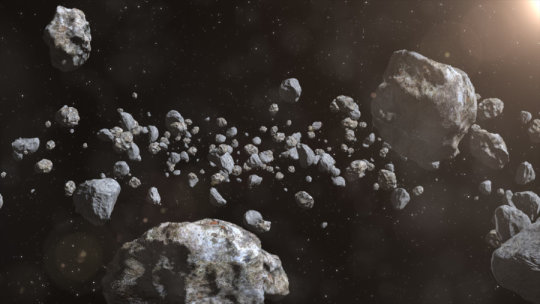[ad_1]
Most asteroids and meteorites originate from the splintering of a handful of minor planets formed during the infancy of our solar system, a new study shows.
A study appearing online today in Nature Astronomy found at least 85 percent of 200,000 asteroids in the inner asteroid belt — the main source of Earth’s meteorites — originate from five or six ancient minor planets. The other 15 percent may also trace their origins to the same group of primordial bodies, said Stanley Dermott, lead author and a theoretical astronomer at the University of Florida.
The discovery is important for understanding the materials that shaped our own rocky planet, Dermott said.
The finding provides a more robust understanding of the evolutionary history of asteroids and the materials that form them — information Dermott says could prove essential to protecting the Earth and ourselves from meteorites the size of the Statue of Liberty and asteroids more powerful than atomic bombs.
“These large bodies whiz by the Earth, so of course we’re very concerned about how many of these there are and what types of material are in them,” said Dermott, professor emeritus in UF’s College of Liberal Arts and Sciences. “If ever one of these comes towards the earth, and we want to deflect it, we need to know what its nature is.”
Dermott’s team demonstrated that the type of orbit an asteroid has depends on the size of the asteroid. This finding suggests that differences in meteorites found on Earth appear because of the evolutionary changes that occurred inside a few large, precursor bodies that existed more than four billion years ago, Dermott said.
“I wouldn’t be surprised if we eventually trace the origins of all asteroids in the main asteroid belt, not just those in the inner belt, to a small number of known parent bodies,” Dermott said.
Building knowledge of the evolutionary history of bodies that formed our early solar system helps theoretical astronomers answer questions related to where planets like our own might exist in the universe, Dermott said. But, first, he said we have to understand the processes that produced the planet we live on.
Story Source:
Materials provided by University of Florida. Note: Content may be edited for style and length.
[ad_2]















